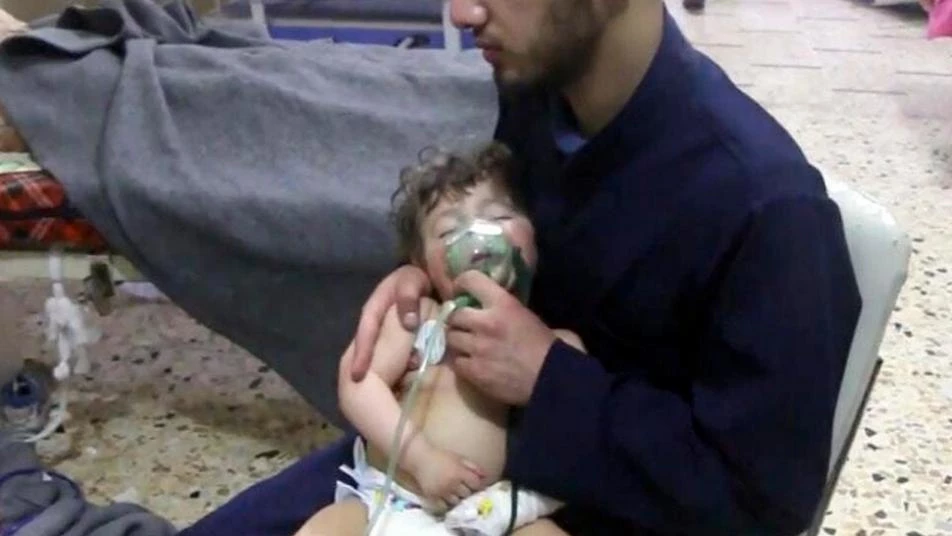SNHR states that the Assad regime, by its repeated use of chemical weapons, is encouraging other regimes in the world to use chemical weapons of mass destruction.
As the report notes, following the attack the Syrian people expected the international community to act and to collectively demand the overthrow of the Assad regime that used weapons of mass destruction, because under international law this is a threat to international peace and security.
As the report explains, the Assad regime’s chemical attacks have resulted in the deaths by suffocation of at least 1,461 individuals, including 185 children, 252 women, 57 opposition fighters, and seven Assad regime prisoners of war who were being held in an opposition prison. Furthermore, these attacks also injured at least 9,757 individuals.
As the report states, the Assad regime carried out 156 chemical attacks from the date of the attack on the two Ghoutas in Damascus countryside on August 21, 2013, up until the Eqerbat attack in Hama countryside on December 12, 2016, a further 13 chemical attacks between the date of the Eqerbat attack and the Khan Sheikhoun attack in Idlib countryside on April 4, 2017, another 14 chemical attacks between the Khan Sheikhoun attack in Idlib suburbs on April 4, 2017, and the Douma city attack in Damascus countryside governorate on April 7, 2018, and one chemical attack since the Douma city attack, which was the al Kbaina attack in the eastern suburbs of Latakia in May 19, 2019.
Following the attack, all the world’s countries that had ratified the Chemical Weapons Convention were supposed to be tireless in their opposition to the regime that used this weapon, and that they would work on punishing it politically, economically and militarily up to replacing it with a regime that respects international law and contributes to its defense.
In reality, however, the reaction of the international community, led by the United States, was limited to demanding the surrender of the weapon used to commit this particular crime while the perpetrator was allowed to maintain his status and to continue with his crimes, encouraging the criminal not to surrender all the quantities of these weapons in his possession, and indeed to use them many times thereafter, with the support of states that are indifferent to the rule of law and human rights such as Iranian regime and Russia.
As the report further reiterates, the chemical attack in the two Ghoutas was not the first of its kind, but it was the greatest and largest in terms of the level of casualties and the size of the geographical area targeted. The report also outlines the documentation methodology of the SNHR through its extensive analyses of how the attacks occurred, the details of the attack and its work to attain an extensive understanding of the form and pattern of these attacks based on the accounts of survivors, as well as on pictures and videos, in addition to creating detailed vertical and horizontal photos that show the locations where the shells landed in each attack and their impact.
The report further notes that the Assad regime’s chemical attacks constitute a very clear violation of the Russian-American agreement, the Chemical Weapons Convention and the relevant UN Security Council resolutions.
The report also outlines the record of the Syrian regime’s use of chemical weapons distributed according to UN Security Council, noting that the Assad regime carried out 33 chemical attacks before UNSCR 2118 and 184 attacks since the same resolution as of August 21, 2018, including 115 attacks after UNSCR 2209 and 59 attacks after UNSCR 2235.
Finally, the report calls on the Organization for the Prohibition of Chemical Weapons to request that the Security Council act immediately to issue a resolution obliging the Assad regime to allow the OPCW team to enter Syria, and to expose the Assad regime and its Russian ally before all the United Nations organizations and bodies as well as before the world’s media institutions, and to put serious pressure on the Assad regime not to repeat its blocking the entry of investigators to the country.



التعليقات (0)